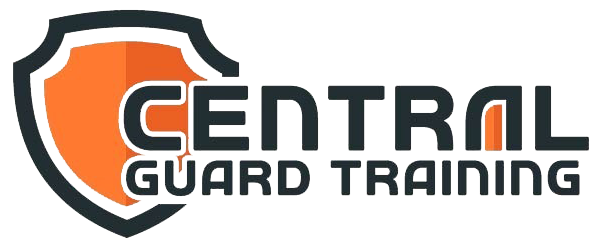
Security Guard vs. Security Officer: Understanding Ontario’s Title Restrictions
In Ontario, the terms “security guard” and “security officer” are often used interchangeably by the public; however, there are key distinctions between the two, especially regarding legal title restrictions and the expectations associated with each role. Understanding these differences is essential for anyone considering a career in security or engaging with these professionals.
Definitions and Roles
Security Guard
A security guard is defined as an individual who is employed to protect people and property. Their primary duties often include:
- Monitoring premises to prevent theft, vandalism, or other illegal activities
- Conducting regular patrols of assigned areas
- Responding to alarms and emergencies
- Writing reports on incidents or suspicious activities
To work as a security guard in Ontario, individuals must complete a mandatory 40-hour training program and obtain a license from the Ontario Ministry of the Solicitor General. This role is primarily entry-level and requires a keen awareness of safety protocols and a commitment to maintaining a secure environment.
Security Officer
A security officer, on the other hand, typically holds a more advanced position with greater responsibilities. While many of their duties overlap with those of a security guard, security officers may also be involved in:
- Developing security plans and risk assessments
- Coordinating security personnel and managing teams
- Working closely with law enforcement and emergency services
- Engaging in conflict resolution and crisis management
In Ontario, the title “security officer” is not officially recognized under current regulations. However, some organizations may use the term to refer to experienced security guards who take on additional responsibilities or supervisory roles.
Title Restrictions in Ontario
One of the critical aspects to understand is that only individuals who hold specific licenses and certifications can legally use the title of “security guard” while on duty. The title of “security officer” has no formal definition or licensing requirements in Ontario; therefore, its use can lead to confusion about the qualifications and role of the individual.
Legal Implications
Using the wrong title can lead to legal repercussions. For instance, if a person misrepresents themselves as a security officer while only being licensed as a security guard, it can result in penalties or damage to reputation. Security companies must ensure that their employees use titles that accurately reflect their qualifications and roles.
Career Progression
For those looking to advance in the security field, it’s essential to understand how these titles can affect career progression. Some employers may use “security officer” to indicate a higher level of responsibility and advanced skills, even if it is not a formally recognized term. Gaining further training, certifications, and experience in areas like conflict resolution, emergency response, or specialized security can enhance one’s qualifications and open up opportunities for upward mobility within the industry.
Final Thoughts
Understanding the distinctions between a security guard and a security officer is crucial for anyone involved in the security sector in Ontario. It ensures compliance with legal requirements and helps clients and employers set proper expectations for their security personnel.
As you navigate your career choices or work with security professionals, always consider the implications of title usage and the qualifications required. Proper labeling and understanding of roles not only enhance professionalism in the workplace but also contribute to safer environments for everyone involved.
If you have further questions or want to delve into more specifics regarding security regulations in Ontario, feel free to ask!
Security Guard vs. Security Officer: Understanding Ontario’s Title Restrictions
In Ontario, the terms “security guard” and “security officer” are often used interchangeably by the public; however, there are key distinctions between the two, especially regarding legal title restrictions and the expectations associated with each role. Understanding these differences is essential for anyone considering a career in security or engaging with these professionals.
Definitions and Roles
Security Guard
A security guard is defined as an individual who is employed to protect people and property. Their primary duties often include:
- Monitoring premises to prevent theft, vandalism, or other illegal activities
- Conducting regular patrols of assigned areas
- Responding to alarms and emergencies
- Writing reports on incidents or suspicious activities
To work as a security guard in Ontario, individuals must complete a mandatory 40-hour training program and obtain a license from the Ontario Ministry of the Solicitor General. This role is primarily entry-level and requires a keen awareness of safety protocols and a commitment to maintaining a secure environment.
Security Officer
A security officer, on the other hand, typically holds a more advanced position with greater responsibilities. While many of their duties overlap with those of a security guard, security officers may also be involved in:
- Developing security plans and risk assessments
- Coordinating security personnel and managing teams
- Working closely with law enforcement and emergency services
- Engaging in conflict resolution and crisis management
In Ontario, the title “security officer” is not officially recognized under current regulations. However, some organizations may use the term to refer to experienced security guards who take on additional responsibilities or supervisory roles.
Title Restrictions in Ontario
One of the critical aspects to understand is that only individuals who hold specific licenses and certifications can legally use the title of “security guard” while on duty. The title of “security officer” has no formal definition or licensing requirements in Ontario; therefore, its use can lead to confusion about the qualifications and role of the individual.
Legal Implications
Using the wrong title can lead to legal repercussions. For instance, if a person misrepresents themselves as a security officer while only being licensed as a security guard, it can result in penalties or damage to reputation. Security companies must ensure that their employees use titles that accurately reflect their qualifications and roles.
Career Progression
For those looking to advance in the security field, it’s essential to understand how these titles can affect career progression. Some employers may use “security officer” to indicate a higher level of responsibility and advanced skills, even if it is not a formally recognized term. Gaining further training, certifications, and experience in areas like conflict resolution, emergency response, or specialized security can enhance one’s qualifications and open up opportunities for upward mobility within the industry.
Final Thoughts
Understanding the distinctions between a security guard and a security officer is crucial for anyone involved in the security sector in Ontario. It ensures compliance with legal requirements and helps clients and employers set proper expectations for their security personnel.
As you navigate your career choices or work with security professionals, always consider the implications of title usage and the qualifications required. Proper labeling and understanding of roles not only enhance professionalism in the workplace but also contribute to safer environments for everyone involved.



